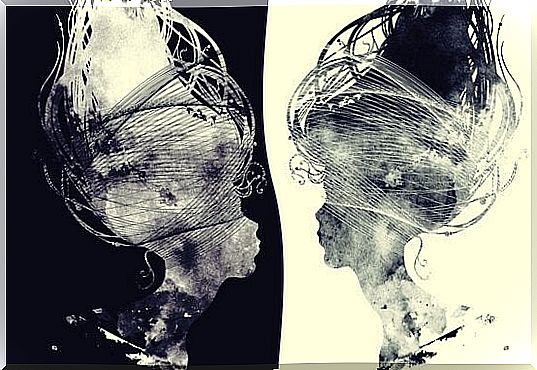The Best Revenge Is Not Taking Revenge

The best revenge is the revenge that is not carried out. The best revenge is to smile at the hatred, suppress the anger and show the other that we can be happy. For there is no better strategy than that of acting calmly and wisely and moving forward, with a strong gaze and a rested heart. Know that there is trouble that it is best not to carry around for too long.
Confucius said very aptly that before we take revenge, we must dig two graves. One for ourselves and one for the opponent. Philosophy has always provided us with frames of reference to reflect on exactly what it means and the moral consequences associated with this very popular and at the same time ‘attractive’ act.
We use this last term, that of attractive, in connection with a very specific fact. We are talking about human behavior that has always caught our attention, we cannot deny that. In fact, something that writers and film producers know well is that the theme of ‘revenge’ fascinates us enormously. It is even said to act almost like a drug: prescribed in small doses it reduces pain, but consuming it in large amounts can kill us.
We can talk about the great literary example of Edmon Dantes or the Count of Monte Cristo. This unforgettable character of Alexandre Dumas has taught us that the best revenge must be executed coolly, unhurriedly and perfectly calculated. Agatha Christie, in turn, entertained us with a complex and equally violent plot in Ten Little Niggers, teaching us that evil or evil deeds must be properly avenged.
Revenge attracts us and we sometimes even justify it. But what psychological processes are behind this act?

Most of us have felt so hurt, hurt, or offended at some point in our lives that the shadow of that bitter and vile, but almost always seductive desire has crossed our minds: that of revenge. Our moral compasses then drift a few degrees from north and we imagine shapes, manners, and situations in which the pain that so grips us is returned to the one who provoked it in us.
So, something that should be clear from the start and what psychologist Gordon E. Finley, a great expert on criminal behavior, reminds us of, is that revenge has little to do with morality. It is an impulse, and it is the catharsis of anger and hatred. Moreover, and only by way of example, as revealed by a study conducted by Professor Ernst Fehr of the University of Zurich, more than 40% of decisions made in the business world have the sole aim of “vengeance” on the competitor.
The same happens with criminal acts: more than half are committed by accumulated resentment towards someone and by the express desire to take revenge on that person. All this forces us to assume that the best revenge doesn’t exist. In addition to the results we get with it, something disturbing happens, something very revealing. We transform into aggressors and gain the same moral qualities as the one who caused the original damage.

The best revenge is that of non-vengeance
We could justify here that the best revenge is that of the non-vengeance. That is what our common sense and morals tell us. And because religious, spiritual and even philosophical movements agree on this too. However, we will look at this recommendation here purely from a psychological perspective.
For example, have we ever wondered what’s behind the people who use revenge almost continuously? Let’s take a closer look at that.
Characteristics of vengeful people
- Someone who reacts vengefully to any insult, big or small, has poor emotional self-control and very little self-knowledge (when someone insults me, I unleash my anger and hate on it).
- It is about people who think they know the absolute and universal truth. They feel the law and the justice, they are the example of how everyone should be.
- They also have dichotomous thoughts: either you agree with me or not; things are done well, or badly.
- They usually have very little empathy.
- They never forgive and never forget, they live subservient to their past and their resentment.

As we can see, revenge from this psychological and emotional box does not bring any benefits. This impulse, this need, or whatever we want to call it, erodes integrity. It not only invalidates good judgment, but also completely limits one’s ability to move forward in life, to build a more optimal and obviously happy reality.
We may be drawn to comic or literary avengers in the style of Edmon Dantes. Yet with them too there is no question of anything but suffering and loneliness. Therefore, the best revenge is always not to take revenge. Even more than that, living a good life and showing others that we are happy is without a doubt the very best form of revenge.









